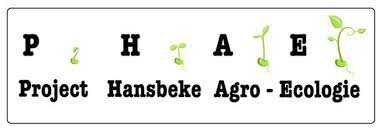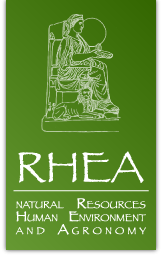Partners
Project Hansbeke AgroEcology

The farm of organic farmer Felix de Bousies has been named PHAE (acronym for 'Project Hansbeke Agro-Ecology') - which also means ‘nourish’ and 'shine' in Greek. Since 2017, Felix has been farming the land following an agroecological vision. Over the last decade, the farm territory has been reshaped with hedges, pools, grass strips and agro-forestry, aiming to make it more resilient and fertile. The crop rotation relies heavily on the uses of legumes, cover crops and temporary grassland, in order to produce quality grains while gradually improving the soil. Roughly a third of the farmland surface is in permanent grassland.
Felix de Bousies: "I've been learning about the agroecological approach for years. Our project has the ambition to demonstrate that farming can be both sustainable and profitable. As a young farmer I will be able to learn a lot from the field trials and the experts who will be active in Hansbeke. The experience and knowledge generated here will be available for everyone to enjoy“.
RHEA

RHEA (Natural Resources Human Environment & Agronomy) is an autonomous Belgian research agency specialized in agroecology, biodiversity, rural development and ecosystem management. Its founder is Alain Peeters, former agricultural professor at the Université de Louvain in Louvain-la-Neuve, specialized in grassland and production systems in temperate and tropical regions.
RHEA works with a multidisciplinary network of scientists and has links with several universities and research centers. Since 2013, RHEA has developed a new agricultural system, an agroecological system consisting mainly of organic no-till and integrating crops and livestock where ruminants are mainly fed with grass. It is a system in which commercial inputs (e.g., fertilizers and pesticides) are replaced by the services provided by biodiversity (e.g., nitrogen fixation by legumes and pest control by their natural enemies). RHEA has also developed a holistic and participatory working method with pilot farms to help farmers transform their entire business into a more profitable and environmentally friendly system. The basic approach for building agroecological knowledge also important at Hansbeke is: farmer and researcher together, with their feet on the ground. This makes it possible to combine practical, scientific and technical knowledge.
ILVO

ILVO (Flanders Research Institute for Agriculture, Fisheries and Food) is one of the 5 Flemish Scientific Institutes. ILVO has locations in Melle, Merelbeke and Ostend. Researchers and technicians provide applicable knowledge for the vegetable, arable and animal primary producers, marine research and exploitation, food and bio-economy: in short the entire agrifood chain.
ILVO also conducts research in support of the organic agriculture and horticulture sector and agroecological practices through project funds and with its own resources. When setting up research and knowledge exchange activities, ILVO starts out from concrete questions and needs of actors from the agrifood sector. The actors are actively involved in the development of the project idea to the performing of research, validation and implementation of results in practice. Soil fertility, composting techniques, cultivation techniques, natural pest control, circular agriculture, business models, etc. are a few of the ILVO fields of expertise that are deployed at PPAE Hansbeke.